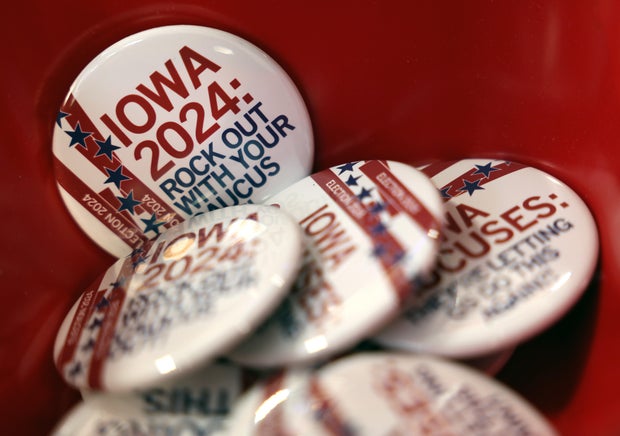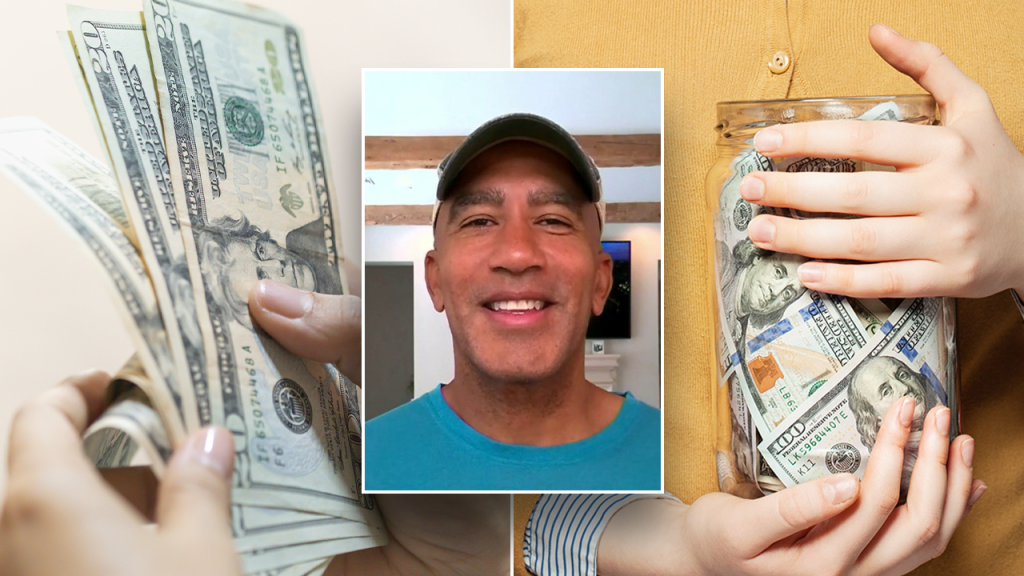The first official contest of the 2024 election will be held Monday in Iowa with the state’s closely-followed caucuses.
Former President Donald Trump‘s influence on the party will face its first test of the 2024 election — he is holding on to a wide lead but his trailing rivals are hoping to pull off an upset.
Does finishing first in Iowa matter?
While “winning” the state isn’t a prerequisite to clinching the party nomination, placing at the top of the pack could give a campaign needed momentum to stay in the race. There are only 40 delegates at stake out of the 1,215 needed to win the nomination.
“The thing about Iowa is that we don’t say that we’re the kingmaker. What we say is that we separate the contenders from the pretenders,” said Tim Hagle, associate political science professor at the University of Iowa. “What our job is to do is to vet those candidates. And the caucus process, as much as a lot of the attention is going to be on what happens this coming Monday, this process has been going on for over a year.”
Who’s on the ballot?
To qualify to be on the 2024 Republican presidential preference ballot in Iowa, candidates must register on state Iowa polling or have a campaign presence in the state. According to a representative from the Republican Party of Iowa, Trump, Florida Gov. Ron DeSantis, former U.N. Ambassador Nikki Haley, biotech entrepreneur Vivek Ramaswamy , former Arkansas Gov. Asa Hutchinson and pastor Ryan Binkley will be on the ballot. Former New Jersey Gov. Chris Christie, who dropped out of the race on Wednesday, will also be on the ballot.
All other votes will go under “other.”
How does a candidatewin Iowa?
While retail politics may be the conventional campaign strategy in Iowa, there can be a disparity in the number of appearances candidates are making across the state and the level of support they’re registering in the Iowa polls.
Biotech entrepreneur Vivek Ramaswamy touted his completion of “The Double Full Grassley,” meaning he visited all 99 counties twice, but is still polling in the single digits. Former President Donald Trump has campaigned in the state only a fraction of the time of his primary rivals but still has a commanding lead.
“It’s one thing for the candidate to get out there and do these things but you’ve also got to have and build a staff of volunteers in the various parts of the state that can help to coordinate,” said Hagle.
According to Kaufmann, previously successful presidential bids in the Hawkeye State relied on a combination of fairly consistent in-person meetings with voters and sophisticated hyperlocal organizing. He pointed to Ted Cruz’s 2016 Iowa operation as an example of a successful ground game.
“Are they asking us for daily updates of who the precinct chairs are? Are they asking us if there’s any changes in locations?” Kaufmann said. “I don’t think Ted Cruz necessarily won the Iowa caucuses because he had a better personality. I think it was an organizational defeat.”
What is a caucus?
Unlike primaries, caucuses are run by and for political parties, not the state. During presidential years, the first major order of business is conducting the presidential preference poll. For Republicans, a representative, also known as a precinct/caucus captain, from each campaign will give a short speech in support of their candidate. Voters will then be handed paper ballots to make their choice. Once collected and recorded, the results of the precinct will be announced then submitted to the Republican Party of Iowa.
Who can participate in the GOP caucuses?
Any Iowa resident over the age of 18 or who will be 18 before the November general election can caucus. To participate in the 2024 Iowa GOP caucuses, a resident must be a registered Republican voter or willing to register as a Republican on caucus night.
If Democrats or independents want to participate in the GOP caucuses, it is legal for a non-registered Republican to change their affiliation up to caucus night.
What are Iowans saying?
After months of campaign events from town halls to meet-and-greets, fewer Iowans are anticipating making a game time decision on caucus night.
“I think most folks have decided by now,” said Jerry Clark, a Republican voter from Waukee.
Clark is one of thousands of “dug in” Trump supporters in Iowa. Many of them say they aren’t willing to consider other candidates in the race because of their strong backing for the former president.
“He has four years of history,” said Clark. “So if he’s saying something, it should match the things he did for the other four years. The other guys don’t have that.”
Joyce White, a Republican voter from Newton, says she has seen most of the Republican presidential hopefuls speak in person but has yet to hear a convincing argument that would break her plan to vote for Trump three cycles in a row.
“This wasn’t even a consideration that I had to worry about,” White said. “It was all decided a long time ago.”
Voters still on the fence seem to be shopping between candidates not named Trump. Leon, an Independent voter, says he was planning to avoid the caucuses until he heard Nikki Haley speak at the Iowa Renewable Fuels Summit in Des Moines.
“I’m not committed,” he said. “But if I did, I’ve decided who I would caucus for. It would be Haley.”


